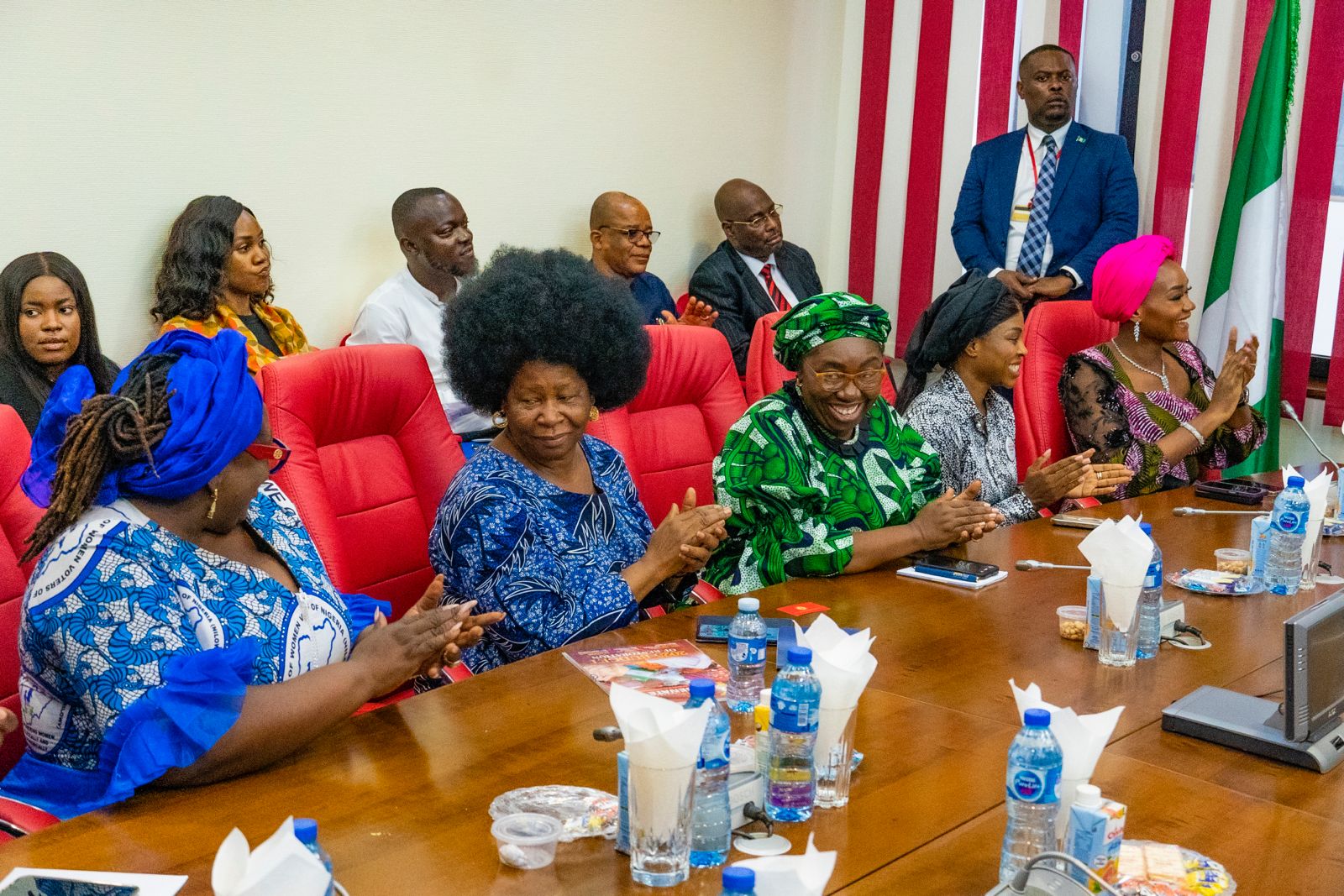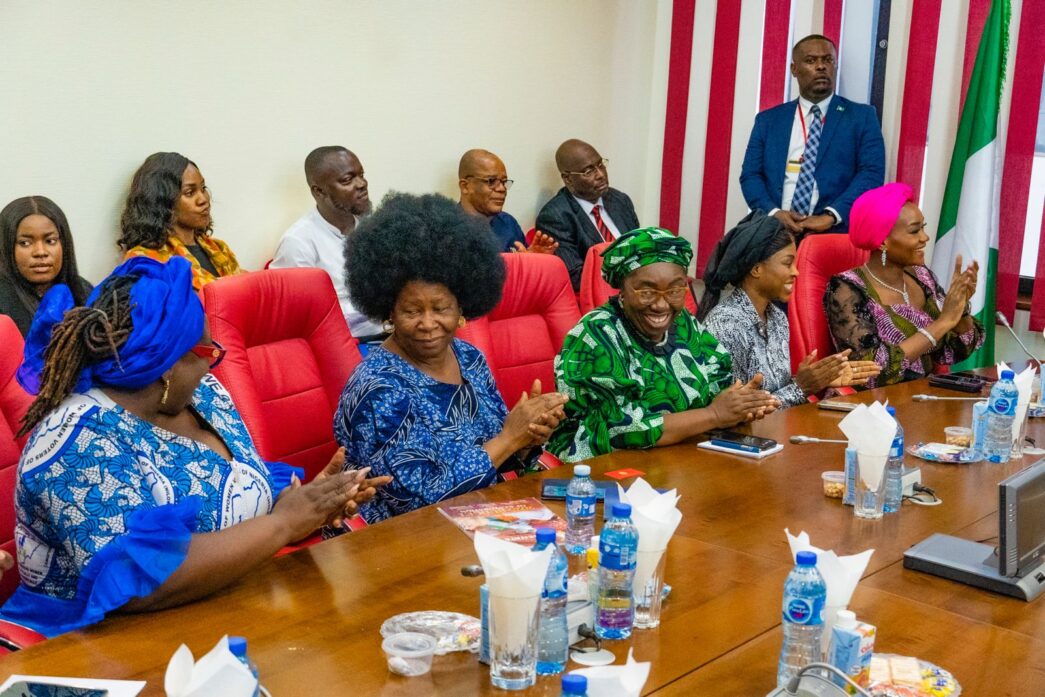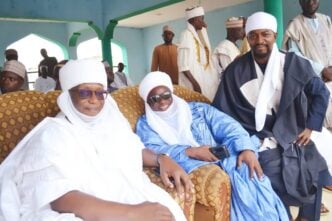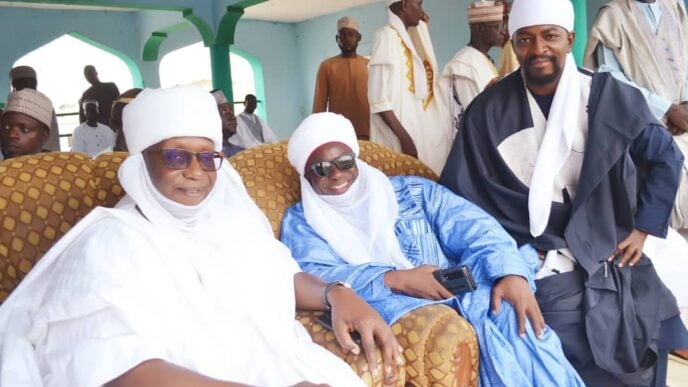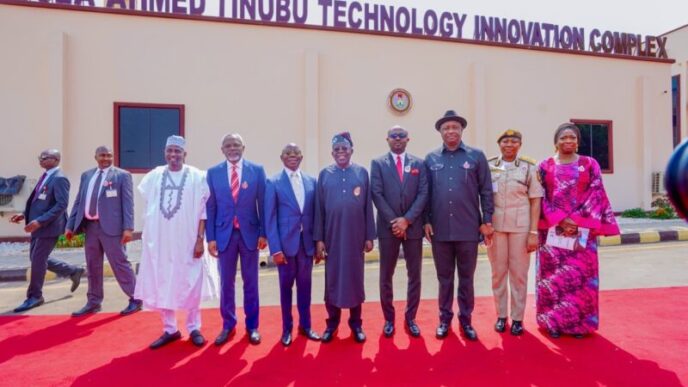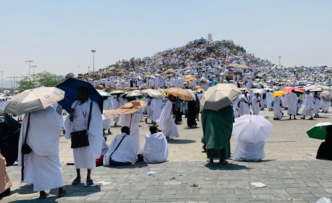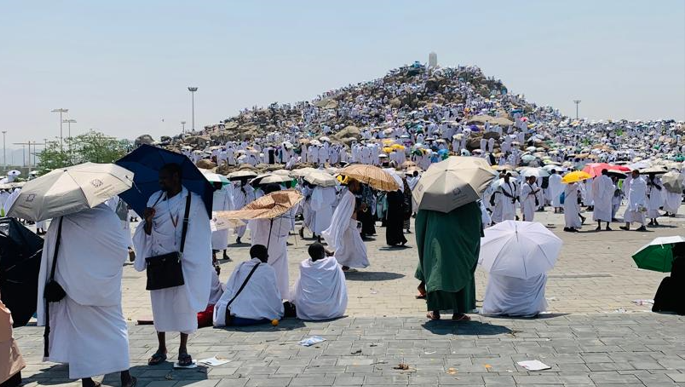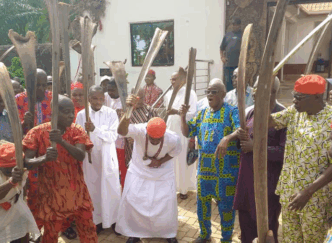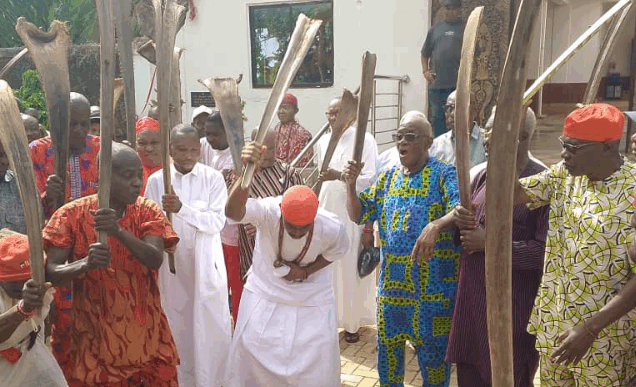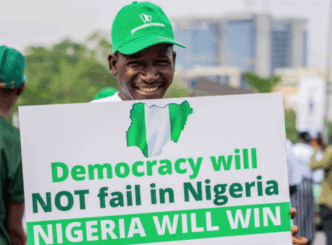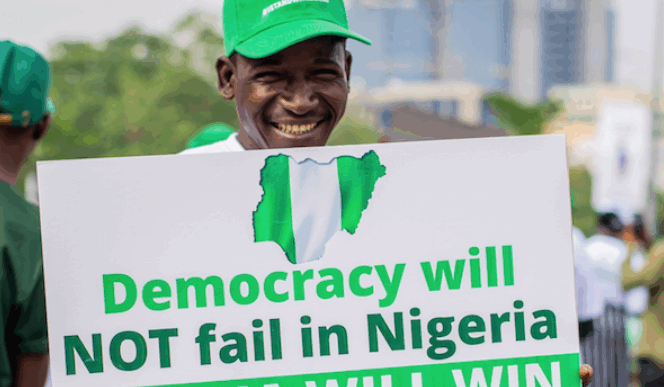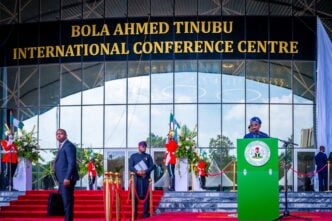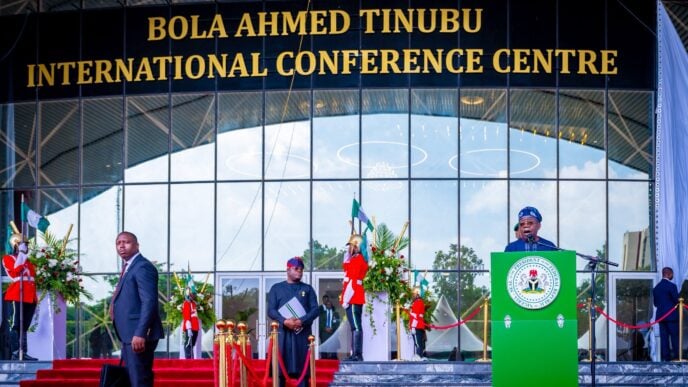Advocates of the Reserved Seats for Women Bill meeting with the leadership of the senate in May 2025
BY: OSASU IGBINEDION OGWUCHE
Twenty-six years ago, Nigeria stood at a crossroads. We had seen the cost of silence, the damage done by decrees handed down by unelected men behind closed doors, the fear that seeped into daily life when freedom was seen as a threat. And we said: no more.
We chose democracy not because it was easy or perfect, but because it held a promise. A promise that power could belong to the people. That decisions could be made not by bullets but by ballots. That every citizen, regardless of background, belief, or gender, could have a voice in shaping the future of our country.
That choice was bold. And it was right. But as we mark yet another Democracy Day, we must have the courage to ask ourselves: Have we kept that promise? Has Nigerian democracy delivered on its full potential?
Because while we’ve made strides, held elections, transferred power, built institutions, we cannot ignore one glaring truth: our democracy remains incomplete without women.
Advertisement
Women make up half of Nigeria’s population. We are the ones holding our communities together, leading families, running businesses, organising civil society, turning out to vote in overwhelming numbers. We are educators, caregivers, peacemakers, and often the glue that keeps this nation from falling apart at the seams.
And yet, when you walk into the chambers of the National Assembly, or into the decision-making rooms of our political parties, you’ll find a different story. Women hold less than 5% of seats in our legislature. We are barely visible in party leadership. We remain, far too often, on the outside of power, asked to wait our turn in a system that was never designed for us in the first place.
That’s not just an injustice to women. That’s a democratic deficit.
Advertisement
Because democracy isn’t just about casting a vote, it’s about having your voice represented where it counts. When entire segments of our population are shut out of leadership, we’re not hearing the full story of our country. We’re not tapping into the full range of solutions. We’re not living up to the ideal of government by the people, for the people, all the people.
I’ve seen firsthand the courage and brilliance of Nigerian women. Women who have run for office in the face of harassment and hostility. Women who have built grassroots movements out of nothing but belief and backbone. Women who have taken on the mantle of leadership in communities, media, advocacy, and governance, even when the odds were stacked against them.
These women didn’t wait for permission to lead. They didn’t ask whether they were ready. They stepped up because the country needed them and because they knew that if they didn’t lead, perhaps no one else would.
But isolated stories of triumph are not enough. If our daughters still have to fight ten times harder just to be heard, to be taken seriously, to be allowed in the room, then we are not yet the democracy we claim to be. And if we leave it to luck or circumstance for women to rise, we’re gambling with the future of our country.
Advertisement
That’s why the Reserved Seats for Women Bill matters. Not just as policy, but as principle.
This bill proposes a simple but powerful idea: that we cannot afford to wait another generation to build inclusive governance. That we must create space intentionally, structurally for women to lead at every level of our democracy.
And let me be clear: this is not about charity. It’s not about handouts. It’s not about lowering standards. It’s about correcting a long-standing imbalance. It’s about recognising that the barriers women face, lack of party support, unequal campaign financing, gender-based violence and intimidation, are not reflections of merit, but symptoms of a rigged game. It’s about levelling the field, so we can finally say: let the best candidates win, truly.
Some may argue that democracy should be organic. That representation should happen naturally. But we know the truth: systems don’t correct themselves without pressure. Injustice doesn’t reverse itself without intention. If we want to change the face of leadership in Nigeria, we have to make that choice deliberately and unapologetically.
Advertisement
We’ve seen this work in other countries. Rwanda, Senegal, South Africa; nations that introduced gender quotas not to check a box, but to unlock their full potential. And the results speak for themselves: stronger policies, more inclusive governance, and a renewed sense of national unity.
The Reserved Seats Bill is a chance for Nigeria to join that vanguard. To say: we believe in our women. We trust their leadership. We want their voices in the rooms where decisions are made.
Advertisement
And this is about more than parliament. It’s about transforming our entire political culture. It’s about ensuring that party systems are accessible and fair. That campaign finance structures don’t reward only those with deep pockets or powerful patrons. That women in public life can speak their minds without fear of violence or online abuse.
It’s about the next generation. Because when young girls in Agatu or Maiduguri or Okada see women occupying positions of power, not just as tokens, but as leaders, they begin to imagine something different for themselves. They start to see public service as a possibility, not a dream. And that belief? That belief can reshape our politics for decades to come.
Advertisement
That’s why I fight for this bill. That’s why I’ve dedicated my work in advocacy, in media, in shaping policy, to building platforms where women’s voices are amplified, not sidelined. Where leadership is defined by vision, courage, and integrity, not by gender.
To the members of the National Assembly: You have a chance to make history. Not just to pass a bill, but to pass the baton to a new kind of leadership. One that reflects the full promise of our democracy.
Advertisement
To party leaders and gatekeepers: You have a role to play. Open the doors. Support your female aspirants. Challenge outdated structures and outdated thinking. Create space for bold, new voices.
And to young Nigerians, especially young women: Don’t wait to be invited. You are not guests in this democracy. You are heirs to it. You have every right to take up space, to run for office, to raise your voice. This country belongs to you too.
I believe in Nigeria because I believe in Nigerians, in our brilliance, our endurance, our boundless capacity to rise in the face of adversity. I’ve seen what’s possible when we stop asking whether change is realistic and start insisting that it’s necessary.
We’ve come too far to settle for half a democracy. And we owe it to the generations to come to finish what we started 26 years ago, not just with ballots and constitutions, but with courage and commitment.
Democracy without women is a contradiction. It is a promise unfulfilled. But a democracy with women leading, legislating, transforming is not only more just. It is more capable. More compassionate. More complete.
Let’s build that democracy. Together.
Osasu Igbinedion Ogwuche is the Group CEO of TOS Group and the lead advocate for the Reserved Seats for Women Bill Campaign Coalition.
